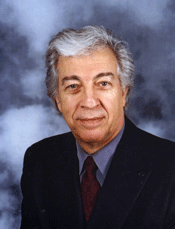 |
 |
|
|
 |
||
| Annual Report | ||
 |
News | |
| MDRC Administration | ||
 |
Directory / Bottin | |
 |
Contact Us | |
 |
Directions / Maps | |
 |
Steering Committee | |
| Research | ||
 |
Events & Seminars | |
 |
MDRC at the forefront | |
 |
McGarry Lecture | |
 |
Cahill Lecture | |
 |
MDRC Core Facilities | |
 |
Scientific Links | |
 |
Education & Employment | |
| Funding | ||
 |
MDRC Grants | |
 |
Donations | |
 |
Non-Profit & Industrial Partners | |
| Medical Information | ||
 |
JDRF | |
 |
CDA | |
 |
Diabetes Quebec | |
 |
ADA | |
 |
IDF | |
 |
NIH / NIDDK | |
 |
Alfediam | |
 |
EASD | |
| Home / About Us > Dr Jean-Louis Chiasson | 
Contact info Dr Jean-Louis Chiasson Tel: 1-514-890-8000, ext. 12732
Research keywords
|
|
Jean-Louis Chiasson, MD
Professor of Medicine
Biographical Sketch
Dr Jean-Louis Chiasson is currently Full Professor of Medicine at the Universit� de Montr�al. He is Head of the Research Group on Diabetes and Metabolic Regulation at the Research Center of the Centre hospitalier de l'Universit� de Montr�al (CRCHUM). Dr Chiasson obtained his MD at Universit� Laval in Quebec City in 1967. He did his specialty training in Internal Medicine at Univesit� Laval and in Endocrinology at McGill University. He then did a research Fellowship in Diabetes at Vanderbilt University in Nashville Tennessee. In 1978, he was appointed Assistant Professor in the Department of Medicine at Vanderbilt University. In 1980, he moved to Montreal as a Professor in the Department of Medicine at the Universit� de Montr�al and as an Endocrinologist at H�pital H�tel-Dieu, now part of the Centre hospitalier de l'Universit� de Montr�al. Dr Chiasson's research interest includes the regulation of carbohydrate metabolism in health and diabetes as well as the development and evaluation of new strategies for the treatment and prevention of diabetes and its vascular complications. He has contributed over 200 scientific publications and lectures nationally and internationally on various topics on diabetes mellitus, its pathogenesis, its treatment and its prevention. Selected Scientific Contributions
Dr Chiasson has contributed significantly in characterizing the role of insulin and glucagon in the regulation of basal glycogenolysis and gluconeogenesis using arterio-venous catherization and isotopic techniques in healthy dogs and humans. He developed a double-isotope technique to measure gluconeogenesis in humans. Most of this work was done between 1972 and 1980. It still remains a major contribution to our understanding of the regulation of those 2 metabolic processes. He has contributed significantly in characterizing the hormonal regulation of glycogen metabolism in rat skeletal muscle using hindlimb perfusion technique. Most of these studies were done between 1980-1990. These contributions resulted in a better understanding of the hormonal regulation of skeletal muscle glycogen metabolism. Over the last 20 years, he contributed in the development and validation of algorithms for the adjustment of insulin doses for intensive insulin therapy in IDDM patients using CSII or multiple insulin injections. He developed and validated a computer-program to assist the patients in the adjustment of their insulin doses. These studies have helped the diabetic patients to improve their glycemic control and, therefore, their quality of life. In the 1990s, he contributed in characterizing glucose turnover in healthy or diabetic human subjects. He characterized glucose turnover during pregnancy as well as during labor. He also characterized the role of insulin and glucagon during moderate intensity exercises in healthy subjects. Furthermore, he developed and validated algorithms for the adjustment of premeal insulin doses for subjects with type 1 diabetes who do postprandial exercise. All these studies have contributed to a better understanding of the homeostasis of glucose metabolism in health and diabetes. Over the last 20 years, he contributed to the concept of post-prandial hyperglycemia as a risk factor for diabetes and its vascular complication. As principal investigation of a Canadian randomized trial, he has shown that decreasing post-prandial hyperglycemia using an α-glucosidase inhibitor, acarbose, could improve glycemic control in diabetic subjects and improve insulin sensitivity in diabetic subjects as well as in subjects with impaired glucose tolerance (IGT). Based on these observations, he coordinated an international study, the STOP-NIDDM Trial, on the prevention of type 2 diabetes in IGT subjects. It was shown that acarbose could decrease the risk of diabetes by 36%. Furthermore, decreasing post-prandial hyperglycemia in IGT subjects was also associated with a reduction in the risk of CVD by 49%. He is currently involved in a larger study specifically looking at the effect of acarbose on cardiovascular events in subjects with IGT and coronary disease, the ACE trial. Most significant Publications |
|
| � Montreal Diabetes Research Center 2018 |
| Home / About Us News Directory / Bottin Contact Us |